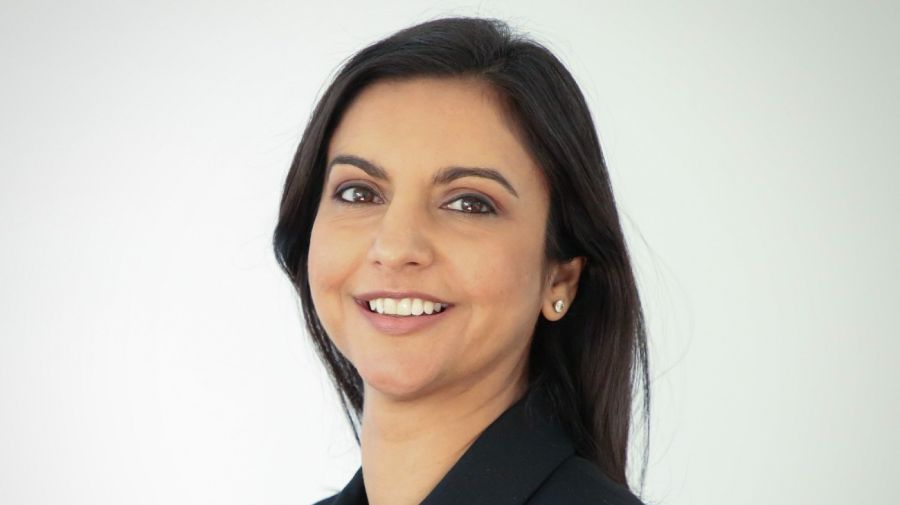Today is the Day of the Immigrant in Argentina. Since 1949, a decree has set September 4 as the day to celebrate those who came from other lands and contributed their traditions to Argentine culture.
Although every day I find some reason to be amazed or to admire this country, learning about this prominent place given to immigration, to the existence of diverse communities within Argentine society, touched me especially.
It may be a biased opinion, but I think immigrants are incredibly brave. To leave home for an unknown land, without your family and friends, to build a new life and navigate a new culture, system and society is very difficult.
I was born and raised in the United Kingdom, but my parents are from New Delhi, India. My father arrived in the UK in the 1960s to work as a doctor in the National Health Service (NHS) and my mother arrived in the 1970s, following their marriage. I can’t imagine how difficult my mother found her new life, moving from her family home at the age of 25 to cold, grey, alien Coventry. She adapted incredibly well, raised two children, ran a successful business, made friends and built a community around her. But it wasn’t easy.
There is a phrase that often comes to mind about her experience, and it is “the inheritance of loss.” Although I had never lived in India, my mother was often very homesick and felt the loss of her homeland. I also felt her loss. We missed all manner of family connections and celebrations, including the deaths and funerals of my beloved grandparents. As a quiet man, my father put on a much braver face. But he experienced some racism and prejudice at work, and found it much harder to fit into British society. Given their experiences, they were determined that my brother and I wouldn’t suffer as they had. Like all typical Indian immigrant families, they focused on our education and career success as their main goal for a life of personal and professional sacrifices.
Identity is a fluid thing – it is the relationship you have between yourself and the country of your birth as well as your heritage, culture and family. I am British, but it doesn’t escape me that one of the most significant historical connections between the UK and India was colonialism. But I don’t shy away from that fact – it’s inescapable. My paternal grandfather was a doctor and officer in the British Army, fighting in the Burma campaign of World War II (1942-1945) which was mainly fought by soldiers from the Commonwealth. My father was born in 1941 – in pre-independence India in what is now modern day Pakistan. Britain had a huge impact on his personal life and childhood, and given his father’s background as a doctor in the British Army, it made sense to him to go to the UK when the opportunity arose. In the 1950s and 1960s, Britain wanted and needed immigrants to staff the NHS, as well as other essential public services and factories – jobs that were not being filled by the local population at that time. For this reason, I am proudly defiant in the face of the recent racist violence in the UK. Clearly, those people do not speak for me (nor the majority of the British population) but also, they have no right to tell me to “go back home.” I am home. My family has contributed significantly to Britain. It is why I am proud to be the deputy ambassador and represent my country – it is the culmination of a lifetime of sacrifice by my parents and our ancestors.
Although the immigrants who contributed to making our countries more diverse societies come from different origins and arrived motivated by different circumstances, I feel that there is a thread that unites us Argentines and British: the conviction that diversity makes us stronger, the satisfaction of welcoming those who came to build a better country, the drive to integrate new traditions into the national identity. When our former Prime Minister, Rishi Sunak, also of Indian descent, lit the traditional Diwali candles with his family in front of his official residence, I felt a deep sense of pride, as a member of the Indian community but also as a British citizen and diplomatic representative of the United Kingdom abroad. Something similar to what the Muslim community experienced when the Mayor of London, Sadiq Khan, son of Pakistani immigrants, inaugurated the Ramadan lights in the West End.
Some of all this process that combines diversity and integration can also be appreciated when you travel through Buenos Aires and other Argentine cities. From the colloquial expressions that the descendants of Italians managed to inject into the Spanish spoken in Argentina to the supermarkets that Chinese immigrants set up in every neighbourhood or the arepa stands that the last wave of Venezuelans brought to us, each community left and is leaving its contribution here as well.
Undoubtedly, this open spirit of integrating everyone into a plural society is one of the many values shared by Argentine and British society, as are freedom of belief, democratic principles, respect for human rights, protection of gender diversity and the promotion of universal education, among many others.
* Bhavna Sharma is Deputy Head of Mission at the British Embassy in Argentina.

related news
by Bhavna Sharma, Deputy Head of Mission, British Embassy























Comments